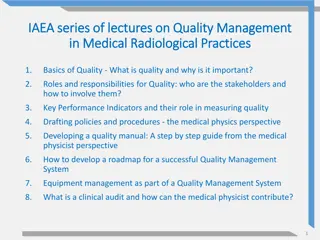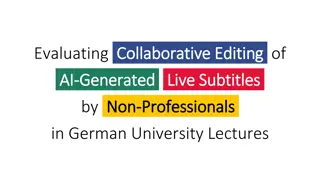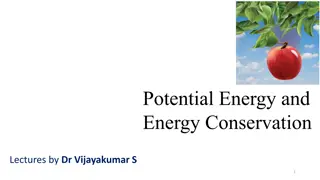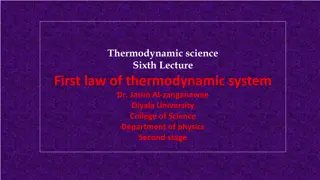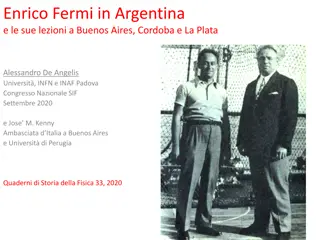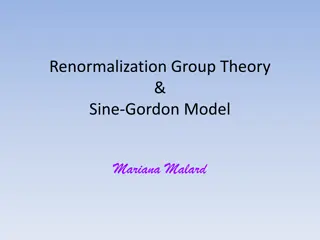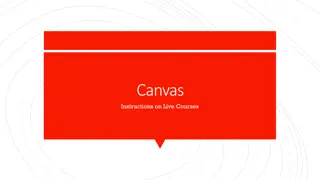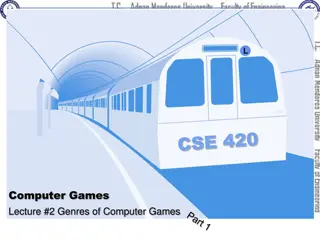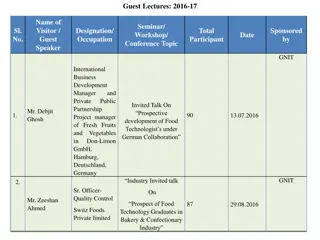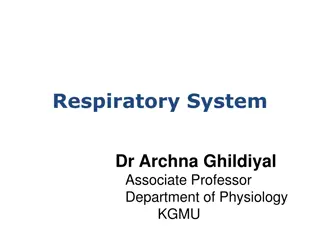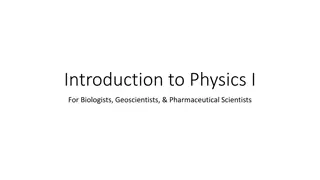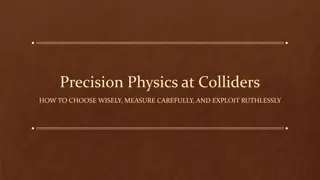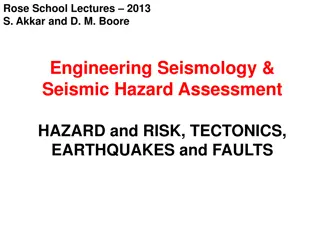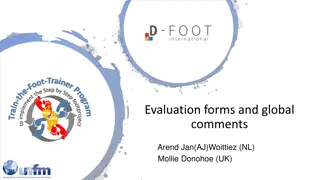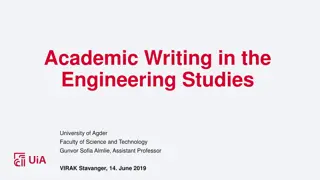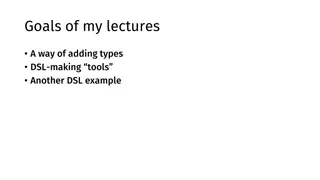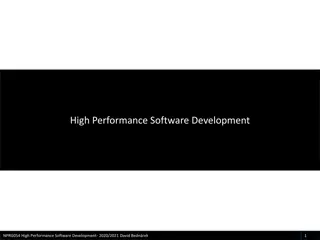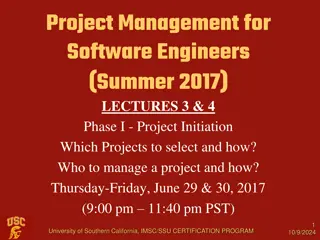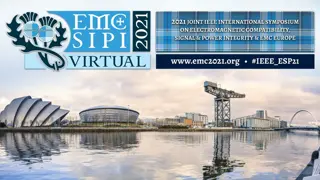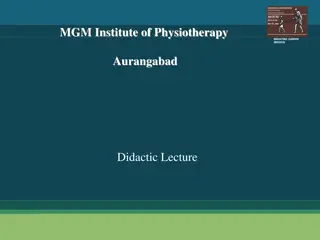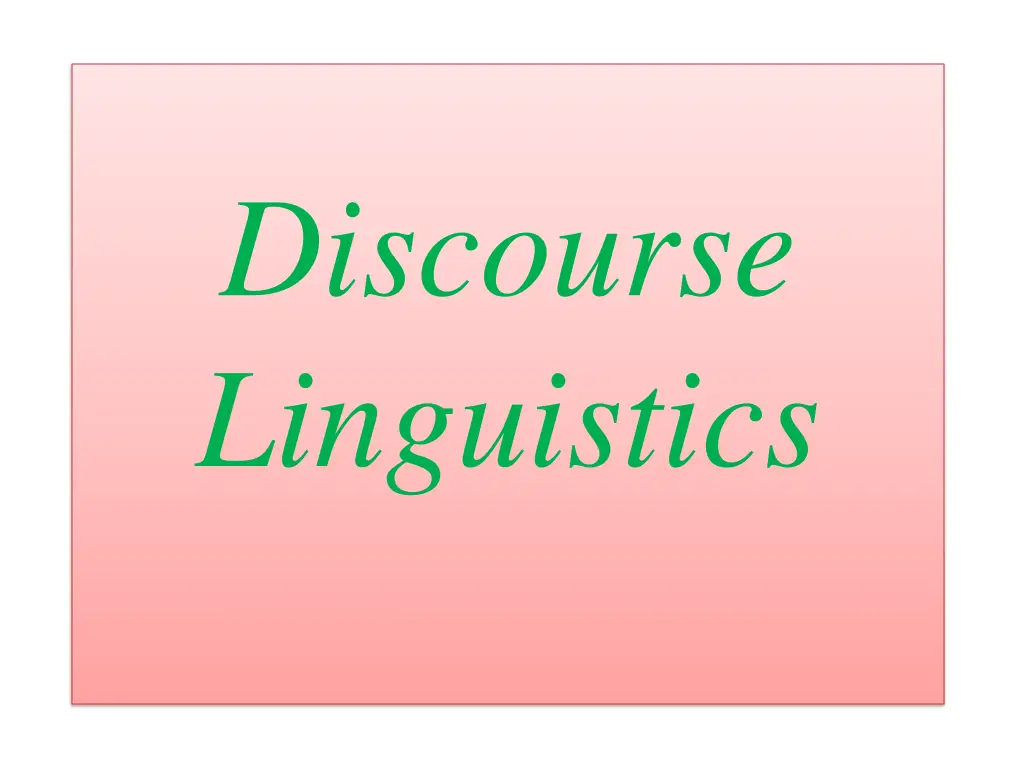
Understanding Discourse in Linguistics: Definitions and Concepts
Explore linguistic definitions of discourse, its components, and related concepts in this insightful discussion. Delve into how discourse is defined through speech, extralinguistic phenomena, and the concept of text in various contexts.
Download Presentation

Please find below an Image/Link to download the presentation.
The content on the website is provided AS IS for your information and personal use only. It may not be sold, licensed, or shared on other websites without obtaining consent from the author. If you encounter any issues during the download, it is possible that the publisher has removed the file from their server.
You are allowed to download the files provided on this website for personal or commercial use, subject to the condition that they are used lawfully. All files are the property of their respective owners.
The content on the website is provided AS IS for your information and personal use only. It may not be sold, licensed, or shared on other websites without obtaining consent from the author.
E N D
Presentation Transcript
Discourse Linguistics
Lectures 1-2 THE CONCEPT OF DISCOURSE IN LINGUISTICS
Questions to discuss 1. Linguistic definitions of discourse. Components of discourse. 2. Discourse and related concepts.
Question 1 Linguistic definitions of discourse. Components of discourse
Lets have a look at different definitions of the term discourse found in linguistics.
The concept of discourse is often defined through the concept of "speech : 1) discourse is speech inside life (N.D. Arutyunova); discourse = speech+life 2) discourse is speech that belongs to the speaker ( mile Benveniste ); d. = speech +speaker 3) discourse is speech as a purposeful social action (M. Stubbs). D. = speech + social action
In other words, in the definitions above, the term discourse is confined to the concept of speech in combination with extralinguistic factors.
At the same time, the concept of discourse is often defined through the concept of "text": 1) discourse is a complex communicative phenomenon that includes the text and extralinguistic factors (knowledge about the world, opinions, attitudes, goals, etc.) (V. V. Petrov and Y. N. Karaulov); discourse=text +extralinguistic factors 2) a discourse is a text taken as an event (N.D.Arutyunova); d. = text + event 3) a discourse is a spoken text (T. van Dijk). D. = text + speech
Discourse = text+ extralinguistic phenomena
These definitions show that a discourse is a text and extralinguistic background / context.
In some cases, the discourse is also defined through other concepts: 1) discourse is communication of people belonging to a particular social group (V. I. Karasik); 2) discourse is everything that is said and understood in some specific situation; 3) discourse is a language in its constant motion, absorbing a variety of historic periods, individual and social characteristics of both a speaker and the communicative situation in which communication occurs" (T. A. van Dijk); 4) discourse is a "communicative event in certain situations and certain socio-cultural conditions of communication" (S. I. Vinogradov); 5) discourse is a communicative activity which is situationally and socially predetermined and taking place in real space and time coordinates (T. N. Kolokoltseva).
Discourse = linguistic phenomenon(-a) + extralinguistic context (circumstances, events, participants and their intentions, etc.) It s a bit chilly in the room.
Types of extralinguistic context 1) social context is a specific situation, a specific social group (which encourages participants to communicate and determines their speech behavior) 2) cultural and historical context (cultural values of the people, historical epoch) 3) paralinguistic context (gestures and facial expression).
Thus, a discourse is a complex communicative phenomenon that includes two components a linguistic component (i.e. some communicative phenomenon speech, text, language, etc.) and some extralinguistic component (conditions and circumstances of communication). The number and nature of the components depends on the position of the particular author.
Discourse is a system of communication that has a real and potential (virtual) dimension. In the real dimension, it is a field of communication practices, this is the current speech activity in a particular social context. It is a process and connected with real life and real time, and also results from spoken works (texts) in combination with linguistic, paralinguistic and extralinguistic factors. In the potential dimension, discourse is a semiotic space that includes verbal and nonverbal signs focused on serving this communicative sphere, as well as a thesaurus of precedent statements and texts. The potential dimension of discourse also includes an idea of typical models of speech behavior and a set of speech actions and genres specific to this type of communication (E. I. Sheigal) Put this definition in a formula Discourse = 1 + 2+ 3
Zellig Harris (19021992) Discourse is a sequence of sentences pronounced or written by one person (or more people) in a particular situation (1952, Discourse Analysis ).
mile Benveniste (19021976) Discourse is speech belonging to the speaker and is opposed to the objective narration ( recit ).
Question 2 Discourse and related phenomena
As you know, the term of discourse is defined through the other terms: text, speech, language, and communication. Let s see what they mean in linguistics.
Discourse vs. Text If we summarize the basic definitions of the concept of "text", we can say that the text is the result of communicative activity, its material embodiment (written or pronounced). A text is a product of the speech-making process (so, a text is a product of discourse).
Discourse vs. speech The term speech can be defined as the process of speaking and has a sound form or written form (so, speech is the process of actualization of discourse).
Discourse vs. Language Language is a system of signs (symbols) which was not deliberately created and which is used for communication between people, for understanding reality and storing knowledge, etc. (so, a language is a means/tool for creating discourse).
And in this respect, the discourse is not confined to any of these concepts, but only includes them as its structural components.
Discourse vs. communication So, the concept of discourse is very close to the concept of communication. Communication is verbal and para-verbal interaction between people, one of the purposes of which is exchange of information.
Conclusion 1) there is no generally accepted definition of the term discourse , 2) discourse is a complex communicative phenomenon that includes a number of linguistic and extralinguistic components.
Ex. 1. Fill in the gaps with the following words: construct, sentence, utterance, limited, recipient, language Patrik Serio defines discourse as: - an equivalent to the word speech, i.e. a particular ; - a unit which is more than just ; - the influence of the utterance on the ; - units of the , their speech representation; - socially and ideologically type of utterance, for example cookery discourse or academic discourse; - theoretical , used for exploring conditions of text production.
Ex. 2. Who is the author of the following definitions of discourse? Zellig Harris Teun van Dijk E. Benveniste F. de Saussure A discourse is a sequence of sentences spoken or written by one person (or more people) in a particular situation.
Who is the author of the following definitions of discourse? Zellig Harris Teun van Dijk E. Benveniste F. de Saussure Discourse is speech belonging to the speaker and is opposed to the objective narration
Who is the author of the following definitions of discourse? Zellig Harris Teun van Dijk E. Benveniste F. de Saussure Discourse is a language in its constant motion, absorbing a variety of historic periods, individual and social characteristics of both a speaker and the communicative situation in which communication occurs.
Ex. 3. Match the columns. A) a sublanguage used in a particular field of communication; B) the form of organization of communication and practical; C) a material product of the speech-making process; D) the process of speaking, articulating thoughts; (E) A system of symbols for communication of people, the knowledge of reality, and the storage of knowledge. 1. Text 2. Speech 3. Language 4. Functional style 5. Communicative event
Ex. 4. Say what a discourse is (on the basis of the formula below): Discourse = speech + language + text + extralinguistic context.
EX. 5. Compare the following definitions (Say what they have in common. Say in what way are they different). 1. G. A. Orlov examines the discourse as a natural speech, materialized in the form of oral or written speech acts, relatively complete in meaning and structure, the length of which is potentially variable: from syntagmatic (short story, conversations, descriptions, instructions, lectures, etc.) 2. Discourse is the line of intersection of the language and reality, vocabulary and experience (M. Foucault 1996). 3. Discourse is a text in terms of its context or communicative space (T. van Dijk, 1997). 4. Discourse is a verbalized speech-thinking activity, understood as a combination of process and outcome, with its own linguistic and extralinguistic plan (Red 2001). 5. Discourse is a coherent text produced in speech, but understood as an event.

